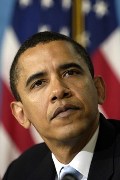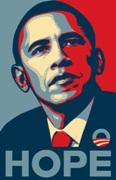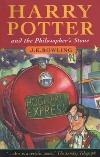The Obama “Hope” Poster Case — Whoa!

 (This is the 8th in a series of posts on Fairey v. Associated Press. See below for other posts in the series.)
(This is the 8th in a series of posts on Fairey v. Associated Press. See below for other posts in the series.)
I’ve been too busy to blog recently about the Hope poster case, but aside from the AP’s answer to Garcia’s claims of ownership, not much has happened. And frankly, given my schedule, I was hoping it would stay that way for a while.
No such luck. AP just issued a press release on recent developments in the case—and it’s a bombshell. It starts off slow, as though the AP was just tendentiously describing some deposition testimony. But then it gets to this:
Fairey’s counsel has now admitted that Fairey tried to destroy documents that would have revealed which image he actually used. Fairey’s counsel has also admitted that he created fake documents as part of his effort to conceal which photo was the source image, including hard copy printouts of an altered version of the Clooney Photo and fake stencil patterns of the Hope and Progress posters. Most recently, on October 15th, Fairey’s counsel informed The AP that they intended to seek the Court’s permission to withdraw as counsel for Fairey and his related entities.
Whoa!

 On Friday, the district court in UMG v. Veoh granted summary judgement in favor of Veoh.
On Friday, the district court in UMG v. Veoh granted summary judgement in favor of Veoh.  I don’t mean to clog up our blog with a debate over copyright law, but
I don’t mean to clog up our blog with a debate over copyright law, but